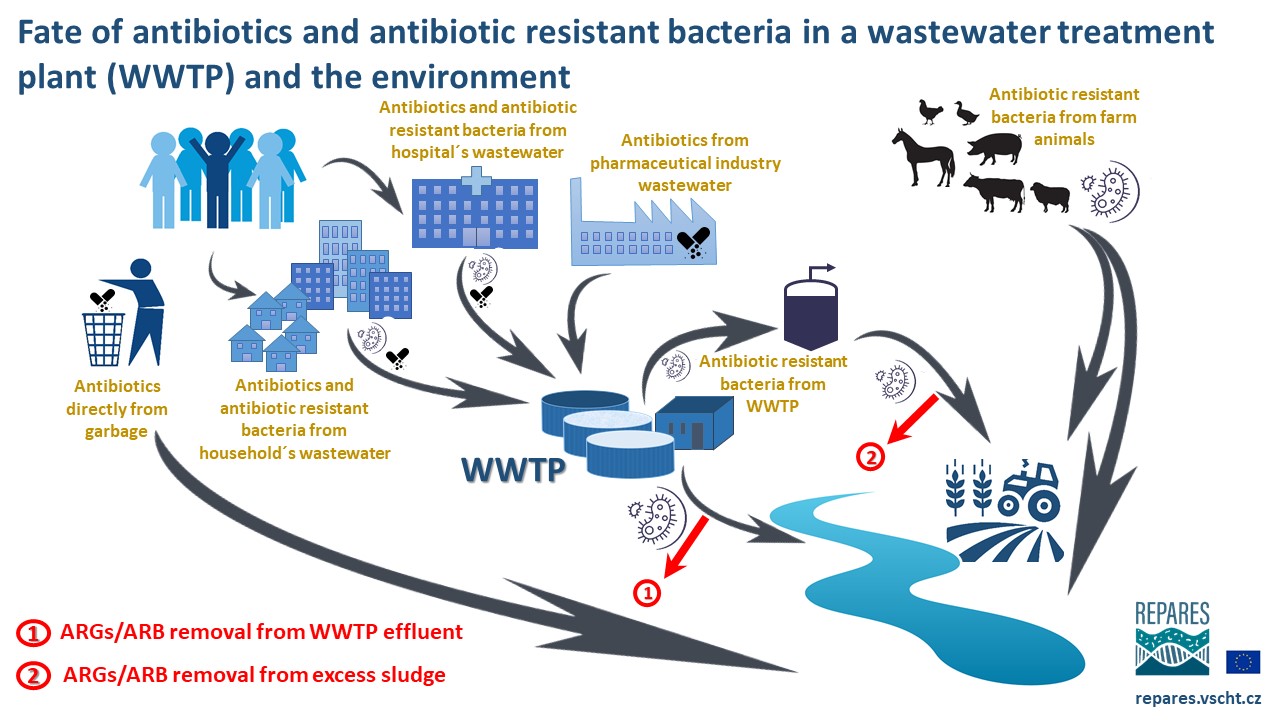stdClass Object
(
[nazev] => REPARES
[adresa_url] =>
[api_hash] =>
[seo_desc] =>
[jazyk] => en
[jednojazycny] =>
[barva] =>
[indexace] => 1
[obrazek] =>
[ga_force] =>
[cookie_force] =>
[secureredirect] => 1
[google_verification] => UOa3DCAUaJJ2C3MuUhI9eR1T9ZNzenZfHPQN4wupOE8
[ga_account] => UA-10822215-5
[ga_domain] =>
[ga4_account] => G-VKDBFLKL51
[gtm_id] =>
[gt_code] =>
[kontrola_pred] =>
[omezeni] => 0
[pozadi1] => 0003~~C8ivSkw5vFYhyDXAMcg1WKEktbgEAA.png
[pozadi2] =>
[pozadi3] =>
[pozadi4] =>
[pozadi5] =>
[robots] =>
[htmlheaders] =>
[newurl_domain] => 'repares.vscht.cz'
[newurl_jazyk] => 'en'
[newurl_akce] => '[en]'
[newurl_iduzel] =>
[newurl_path] => 8549/49296/49297
[newurl_path_link] => Odkaz na newurlCMS
[iduzel] => 49297
[platne_od] => 27.08.2024 14:12:00
[zmeneno_cas] => 27.08.2024 14:12:18.974251
[zmeneno_uzivatel_jmeno] => Jan Kříž
[canonical_url] =>
[idvazba] => 55725
[cms_time] => 1752196306
[skupina_www] => Array
(
)
[slovnik] => stdClass Object
(
[preloader] => Wait a second...
[logo_href] => /
[logo] =>  [logo_mobile_href] => /
[logo_mobile] =>
[logo_mobile_href] => /
[logo_mobile] =>  [google_search] =>
[social_in_odkaz] =>
[social_fb_odkaz] => https://www.facebook.com/utvpvscht/
[social_tw_odkaz] =>
[social_yt_odkaz] =>
[intranet_odkaz] =>
[intranet_text] =>
[mobile_over_nadpis_menu] => Menu
[mobile_over_nadpis_search] => Search
[mobile_over_nadpis_jazyky] => Languages
[mobile_over_nadpis_login] => Login
[menu_home] => Homepage
[more_info] =>
[paticka_mapa_odkaz] =>
[paticka_budova_a_nadpis] => BUILDING A
[paticka_budova_a_popis] => Rector,
Department of Communications,
Department of Education,
FCT Dean’s Office,
Centre for Information Services
[paticka_budova_b_nadpis] => BUILDING B
[paticka_budova_b_popis] => Department of R&D, Dean’s Offices:
FET,
FFBT,
FCE,
Computer Centre,
Department of International Relations,
Bursar
[paticka_budova_c_nadpis] => BUILDING C
[paticka_budova_c_popis] => Crèche Zkumavka,
General Practitioner,
Department of Economics and Management,
Department of Mathematics
[paticka_budova_1_nadpis] => NATIONAL LIBRARY OF TECHNOLOGY
[paticka_budova_1_popis] =>
[paticka_budova_2_nadpis] => CAFÉ CARBON
[paticka_budova_2_popis] =>
[paticka_adresa] => UCT Prague
[google_search] =>
[social_in_odkaz] =>
[social_fb_odkaz] => https://www.facebook.com/utvpvscht/
[social_tw_odkaz] =>
[social_yt_odkaz] =>
[intranet_odkaz] =>
[intranet_text] =>
[mobile_over_nadpis_menu] => Menu
[mobile_over_nadpis_search] => Search
[mobile_over_nadpis_jazyky] => Languages
[mobile_over_nadpis_login] => Login
[menu_home] => Homepage
[more_info] =>
[paticka_mapa_odkaz] =>
[paticka_budova_a_nadpis] => BUILDING A
[paticka_budova_a_popis] => Rector,
Department of Communications,
Department of Education,
FCT Dean’s Office,
Centre for Information Services
[paticka_budova_b_nadpis] => BUILDING B
[paticka_budova_b_popis] => Department of R&D, Dean’s Offices:
FET,
FFBT,
FCE,
Computer Centre,
Department of International Relations,
Bursar
[paticka_budova_c_nadpis] => BUILDING C
[paticka_budova_c_popis] => Crèche Zkumavka,
General Practitioner,
Department of Economics and Management,
Department of Mathematics
[paticka_budova_1_nadpis] => NATIONAL LIBRARY OF TECHNOLOGY
[paticka_budova_1_popis] =>
[paticka_budova_2_nadpis] => CAFÉ CARBON
[paticka_budova_2_popis] =>
[paticka_adresa] => UCT Prague
Technická 5
166 28 Prague 6 – Dejvice
IČO: 60461373 / VAT: CZ60461373
Czech Post certified digital mail code: sp4j9ch
Copyright: UCT Prague 2017
Information provided by the Department of International Relations and the Department of R&D. Technical support by the Computing Centre.
[paticka_odkaz_mail] => mailto:Jan.Bartacek@vscht.cz
[zobraz_desktop_verzi] => switch to desktop version
[drobecky] => You are here: UCT Prague –
[aktualizovano] => Updated
[autor] => Author
[social_in_title] =>
[social_fb_title] =>
[den_kratky_4] =>
[archiv_novinek] =>
[novinky_servis_archiv_rok] =>
[novinky_kategorie_1] =>
[novinky_kategorie_2] =>
[novinky_kategorie_3] =>
[novinky_kategorie_4] =>
[novinky_kategorie_5] =>
[novinky_archiv_url] =>
[novinky_servis_nadpis] =>
[novinky_dalsi] =>
[zobraz_mobilni_verzi] =>
[den_kratky_2] =>
[den_kratky_1] =>
[den_kratky_3] =>
[nepodporovany_prohlizec] =>
[den_kratky_5] =>
[den_kratky_0] =>
[social_li_odkaz] =>
[hledani_nadpis] => hledání
[hledani_nenalezeno] => Nenalezeno...
[hledani_vyhledat_google] => vyhledat pomocí Google
[stahnout] =>
[dokumenty_kod] =>
[dokumenty_nazev] =>
[dokumenty_platne_od] =>
[dokumenty_platne_do] =>
)
[poduzel] => stdClass Object
(
[49299] => stdClass Object
(
[obsah] =>
[poduzel] => stdClass Object
(
[49304] => stdClass Object
(
[nazev] =>
[seo_title] => REPARES
[seo_desc] =>
[autor] =>
[autor_email] =>
[obsah] =>
[urlnadstranka] =>
[ogobrazek] =>
[pozadi] =>
[iduzel] => 49304
[canonical_url] =>
[skupina_www] => Array
(
)
[url] => /home
[sablona] => stdClass Object
(
[class] => boxy
[html] =>
[css] =>
[js] => $(function() {
setInterval(function () { $('*[data-countdown]').each(function() { CountDownIt('#'+$(this).attr("id")); }); },1000);
setInterval(function () { $('.homebox_slider:not(.stop)').each(function () { slide($(this),true); }); },5000);
});
function CountDownIt(selector) {
var el=$(selector);foo = new Date;
var unixtime = el.attr('data-countdown')*1-parseInt(foo.getTime() / 1000); if(unixtime<0) unixtime=0;
var dnu = 1*parseInt(unixtime / (3600*24)); unixtime=unixtime-(dnu*(3600*24));
var hodin = 1*parseInt(unixtime / (3600)); unixtime=unixtime-(hodin*(3600));
var minut = 1*parseInt(unixtime / (60)); unixtime=unixtime-(minut*(60));
if(unixtime<10) {unixtime='0'+unixtime;}
if(dnu<10) {unixtime='0'+dnu;}
if(hodin<10) {unixtime='0'+hodin;}
if(minut<10) {unixtime='0'+minut;}
el.html(dnu+':'+hodin+':'+minut+':'+unixtime);
}
function slide(el,vlevo) {
if(el.length<1) return false; var leva=el.find('.content').position().left; var sirka=el.width(); var pocet=el.find('.content .homebox').length-1;
var cislo=leva/sirka*-1; if(vlevo) { if(cislo+1>pocet) cislo=0; else cislo++; } else { if(cislo==0) cislo=pocet-1; else cislo--; }
el.find('.content').animate({'left':-1*cislo*sirka});
el.find('.slider_puntiky a').removeClass('selected');
el.find('.slider_puntiky a.puntik'+cislo).addClass('selected');
return false;
}
function slideTo(el,cislo) {
if(el.length<1) return false; var sirka=el.width(); var pocet=el.find('.content .homebox').length-1; if(cislo<0 || cislo>pocet) return false;
el.find('.content').animate({'left':-1*cislo*sirka});
el.find('.slider_puntiky a').removeClass('selected');
el.find('.slider_puntiky a.puntik'+cislo).addClass('selected');
return false;
}
[autonomni] => 1
)
)
[69928] => stdClass Object
(
[nazev] => Antibiotická rezistence v ČR: Jak společně zastavit nezastavitelné
[seo_title] => Antibiotická rezistence v ČR: Jak společně zastavit nezastavitelné
[seo_desc] => Pozvánka na důležitý seminář o antibiotické rezistenci (REPARES, CZEPAR, VŠCHT Praha)
[autor] => Lucie Pokorná
[autor_email] => krayzell@vscht.cz
[perex] =>
[ikona] =>
[obrazek] =>
[ogobrazek] =>
[pozadi] =>
[obsah] => Česká platforma antibiotické rezistence Vás zve na seminář:
Antibiotická rezistence v ČR: Jak společně zastavit nezastavitelné
seminář o medicíně, mikrobiologii a životním prostředí pro širší odbornou veřejnost se díky projektu REPARES konal 17.5. 2023 od 9:30 ve Smetanově sále Autoklubu ČR (Opletalova 29, Praha 1)
Boj s antibiotickou rezistencí vyžaduje multidisciplinární týmy expertů z oblasti humánní a veterinární medicíny, mikrobiologie a environmentální technologie. Cílem vznikající České platformy antibiotické rezistence (CZEPAR) je sdružovat odborníky z akademické sféry, praktické medicíny, firemního sektoru a státní správy.
Chcete se dozvědět více? Zaregistrujte se na seminář CZEPAR o možnostech mezioborového řešení problematiky antibiotické rezistence v České republice.
Program semináře
|
09:00 – 09:30 |
Registrace účastníků |
|
09:30 – 09:40 |
Úvod semináře - Ing. Dana Kok, Ph.D. / Prof. Ing. Jan Bartáček, Ph.D. (Vysoká škola chemicko-technologická v Praze) |
|
09:40 – 09:55 |
Fenomén antibiotická rezistence - doc. MUDr. Helena Žemličková, Ph.D. (Státní zdravotní ústav) |
|
10:00 – 10:15 |
- MUDr. Jan Závora a Ing. Gabriela Kroneislová (Všeobecné fakultní nemocnice a 1. Lékařská fakulta Univerzity Karlovy) |
|
10:20 – 10:35 |
Meticilin rezistentní Staphylococcus aureus v českých a slovenských nemocnicích a komunitě - Mgr. Jan Tkadlec, Ph.D. (Fakultní nemocnice Motol, 2. Lékařská fakulta UK) |
|
10:40 – 11:00 |
občerstvení |
|
11:00 – 11:20 |
Problematika antibiotické rezistence z pohledu veterinární medicíny - MVDr. Tomáš Černý (Státní veterinární ústav Praha) |
|
11:25 – 11:45 |
Interakce mezi společností a životním prostředím – One Health koncept - doc. RNDr. Monika Dolejská, Ph.D. (Ústav laboratorní medicíny, Fakultní nemocnice Brno, CEITEC) |
|
11:50 – 12:10 |
Antibiotická rezistence očima Evropské unie - MUDr. Pavel Březovský, MBA (Státní zdravotní ústav) |
|
12:10 – 13:00 |
oběd |
|
13:10 – 14:30 |
Panelová diskuse (1 moderátor, 3 – 4 panelisté) |
|
14:30 – 14:50 |
občerstvení |
|
14:50 – 15:05 |
Antibiotická rezistence na čistírnách odpadních vod - Ing. Petra Moťková, Ph.D. a Ing. Iveta Brožková, Ph.D. (Univerzita Pardubice) |
|
15:10 – 15:25 |
Antibiotická rezistence ve vodách, kalech a dopady na životní prostředí i lidské zdraví - Ing. Sabina Purkrtová, Ph.D. (Vysoká škola chemicko-technologická v Praze) |
|
15:30 – 15:45 |
Česká platforma antibiotické rezistence: Jak společně zastavit nezastavitelné - Ing. Dana Kok, Ph.D. / Prof. Ing. Jan Bartáček, Ph.D. (Vysoká škola chemicko-technologická v Praze) |
|
15:45 – 15:55 |
Shrnutí semináře a pozvání na závěrečnou diskusi u občerstvení |
|
16:00 – ??:?? |
Závěrečný networking |
REPARES (Research Platform on Antibiotic Resistance Spread through Wastewater Treatment Plants), a consortium of leading academic, industry, and policymakers knowledgeable in the Antibiotic Resistance (AR) subject, is geared towards contributing excellence in research on the spread of AR in wastewater treatment plants (WWTPs).
[ikona] => [obrazek] => 0003~~MwMA.png [ogobrazek] => [pozadi] => [obsah] =>
The REPARES Team, mostly made up of academic leaders from top universities across Europe, has established strong cooperation with leading European innovators and internationally renowned experts in the water-related antibiotic resistance field.
- UCT will coordinate and work with AR experts to provide methodologies and development of the REPARES platform
- UCP will leverage its expert leadership in wastewater-mediated antibiotic resistance.
- TUDelft will deliver methods to apply for international projects successfully.
- Wetsus will propel cooperation with the non-academic sector.
- AAU will integrate the REPARES database within the world-accepted MiDAS.
- UW will do the bioinformatics and the validation of qPCR primers.
Background
Antibiotics were developed in 1940 solely for the treatment of infections in humans and animals. Over the years, diseases considered deadly were considered non-issues due to the effectiveness of these medicines. Regrettably, the benefits of antibiotics have been hampered by the development of resistance to antibiotics by bacteria. In recent times certain antibiotics used to eradicate some bacteria have become inactive. Antibiotic resistance (AR) has become prevalent, spreading primarily in populations and the environment. Thus, the development and proliferation of antibiotic resistance are classified among major global threats by the World Health Organization ( ). In addition, the European Centre for Disease Prevention and Control described the colossal effect of AR on the human population resulting in approximately 25,000 deaths per annum, costing the health care sector over € 1.5 billion every year.
Proper sanitation of the water cycle is essential to sustain environmental and human health. The role of wastewater treatment plants (WWTPs) and their microbiomes as putative hotspots for the proliferation of antibiotic resistance has questioned how effective these treatment systems are. Increasingly rising public, stakeholders, and governmental perception on this issue has highlighted the need for new quality criteria and installation upgrades.
Despite the gravity of the AR problem, in the wastewater sector, methodological biases have been the sole limiting factor on adequately monitoring the emission, fate, and possible amplification or removal of antibiotic-resistant bacteria (ARB) and antibiotic resistance genes (ARGs) across WWTPs. Indeed, there is an urgent need to develop standardized methods and a well-curated database for accurate identification, characterization, and quantification of antibiotic resistance in such complex water matrices as wastewater. These issues are what REPARES aims to solve during the project period.
 REPARES Goals
REPARES Goals
REPARES aims at advancing the European community’s know-how on antibiotic resistance across sanitation waterways, which in the future will bring society closer to achieving the Sustainable Development Goal of the United Nations. REPARES will act as an important vector to disseminate information on antimicrobial resistance spread within European WWTPs beyond science and technology to reach the academic and non-academic communities utilizing open events, popularization publications, and operation of the REPARES web platform.
Duration of Project
1 October 2019 - 30 September 2022
The relevance of research on antibiotic resistance
- Antibiotics are one of the common contaminants in wastewater.
- The increased bacterial antibiotic resistance stems from the spread of antibiotic-resistant bacteria and the transfer of resistance genes.
- Antibiotic resistance can be acquired through random gene mutations and/or by horizontal gene transfer.
- The World Health Organization qualified antibiotic resistance development as a significant global threat to society.
REPARES Objectives
- The increasing level of UCT’s scientific excellence
- Improving scientific profiles of UCT’s researchers
- Increasing UCT’s ability to apply for international projects successfully
- Fostering cooperation with the non-academic sector
- Advancing European community’s know-how on antibiotic resistance occurrence and spread in Europe
In total 49 members (except for REPARES members) joined the REPARES platform. The members are in total from 20 countries all around the world. The highest amount of people is from the Czech Republic, however, there are also more people from Belgium, Columbia, Denmark, France, the Netherlands, Poland, the United States of America, and the South African Republic. We also have one member from Argentina, Canada, Egypt, Great Britain, Ireland, Italy, Mexico, Spain, Sweden, Switzerland, and Norway.
Most of the members are from universities (29 members), companies (8 members), policymakers (4 members), institutions (3), and laboratories (2 members). There is also one member from the platform and 2 undefined members.
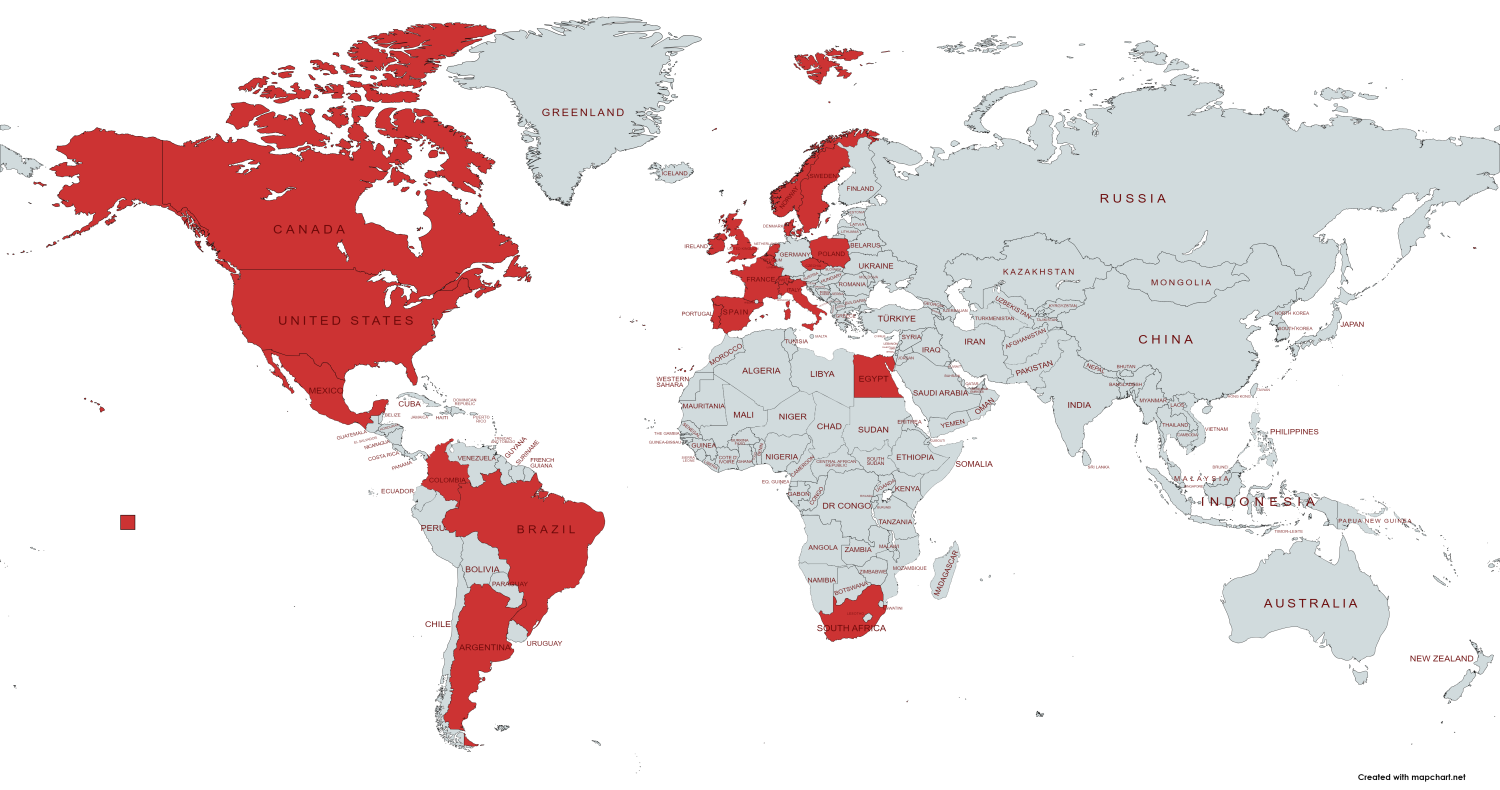
Distribution of REPARES members across the world
[urlnadstranka] => [ogobrazek] => [pozadi] => [iduzel] => 59392 [canonical_url] => [skupina_www] => Array ( ) [url] => /members [sablona] => stdClass Object ( [class] => stranka [html] => [css] => [js] => [autonomni] => 1 ) ) [59393] => stdClass Object ( [nazev] => Antibiotic resistance [seo_title] => Antibiotic resistance [seo_desc] => [autor] => [autor_email] => [obsah] =>Webpage under serious reconstruction! Be back soon!
[urlnadstranka] => [ogobrazek] => [pozadi] => [iduzel] => 59393 [canonical_url] => [skupina_www] => Array ( ) [url] => /antibiotic-resistance [sablona] => stdClass Object ( [class] => boxy [html] => [css] => [js] => $(function() { setInterval(function () { $('*[data-countdown]').each(function() { CountDownIt('#'+$(this).attr("id")); }); },1000); setInterval(function () { $('.homebox_slider:not(.stop)').each(function () { slide($(this),true); }); },5000); }); function CountDownIt(selector) { var el=$(selector);foo = new Date; var unixtime = el.attr('data-countdown')*1-parseInt(foo.getTime() / 1000); if(unixtime<0) unixtime=0; var dnu = 1*parseInt(unixtime / (3600*24)); unixtime=unixtime-(dnu*(3600*24)); var hodin = 1*parseInt(unixtime / (3600)); unixtime=unixtime-(hodin*(3600)); var minut = 1*parseInt(unixtime / (60)); unixtime=unixtime-(minut*(60)); if(unixtime<10) {unixtime='0'+unixtime;} if(dnu<10) {unixtime='0'+dnu;} if(hodin<10) {unixtime='0'+hodin;} if(minut<10) {unixtime='0'+minut;} el.html(dnu+':'+hodin+':'+minut+':'+unixtime); } function slide(el,vlevo) { if(el.length<1) return false; var leva=el.find('.content').position().left; var sirka=el.width(); var pocet=el.find('.content .homebox').length-1; var cislo=leva/sirka*-1; if(vlevo) { if(cislo+1>pocet) cislo=0; else cislo++; } else { if(cislo==0) cislo=pocet-1; else cislo--; } el.find('.content').animate({'left':-1*cislo*sirka}); el.find('.slider_puntiky a').removeClass('selected'); el.find('.slider_puntiky a.puntik'+cislo).addClass('selected'); return false; } function slideTo(el,cislo) { if(el.length<1) return false; var sirka=el.width(); var pocet=el.find('.content .homebox').length-1; if(cislo<0 || cislo>pocet) return false; el.find('.content').animate({'left':-1*cislo*sirka}); el.find('.slider_puntiky a').removeClass('selected'); el.find('.slider_puntiky a.puntik'+cislo).addClass('selected'); return false; } [autonomni] => 1 ) ) [49514] => stdClass Object ( [nazev] => [seo_title] => Media [seo_desc] => [autor] => [autor_email] => [perex] =>Webpage under serious reconstruction! Be back soon!
Newsletter 1 (May 2020)
Newsletter 2 (November 2020)
Newsletter 3 (March 2021)
[ikona] => [obrazek] => [ogobrazek] => [pozadi] => [obsah] => [urlnadstranka] => [iduzel] => 49514 [canonical_url] => [skupina_www] => Array ( ) [url] => /media [sablona] => stdClass Object ( [class] => boxy [html] => [css] => [js] => $(function() { setInterval(function () { $('*[data-countdown]').each(function() { CountDownIt('#'+$(this).attr("id")); }); },1000); setInterval(function () { $('.homebox_slider:not(.stop)').each(function () { slide($(this),true); }); },5000); }); function CountDownIt(selector) { var el=$(selector);foo = new Date; var unixtime = el.attr('data-countdown')*1-parseInt(foo.getTime() / 1000); if(unixtime<0) unixtime=0; var dnu = 1*parseInt(unixtime / (3600*24)); unixtime=unixtime-(dnu*(3600*24)); var hodin = 1*parseInt(unixtime / (3600)); unixtime=unixtime-(hodin*(3600)); var minut = 1*parseInt(unixtime / (60)); unixtime=unixtime-(minut*(60)); if(unixtime<10) {unixtime='0'+unixtime;} if(dnu<10) {unixtime='0'+dnu;} if(hodin<10) {unixtime='0'+hodin;} if(minut<10) {unixtime='0'+minut;} el.html(dnu+':'+hodin+':'+minut+':'+unixtime); } function slide(el,vlevo) { if(el.length<1) return false; var leva=el.find('.content').position().left; var sirka=el.width(); var pocet=el.find('.content .homebox').length-1; var cislo=leva/sirka*-1; if(vlevo) { if(cislo+1>pocet) cislo=0; else cislo++; } else { if(cislo==0) cislo=pocet-1; else cislo--; } el.find('.content').animate({'left':-1*cislo*sirka}); el.find('.slider_puntiky a').removeClass('selected'); el.find('.slider_puntiky a.puntik'+cislo).addClass('selected'); return false; } function slideTo(el,cislo) { if(el.length<1) return false; var sirka=el.width(); var pocet=el.find('.content .homebox').length-1; if(cislo<0 || cislo>pocet) return false; el.find('.content').animate({'left':-1*cislo*sirka}); el.find('.slider_puntiky a').removeClass('selected'); el.find('.slider_puntiky a.puntik'+cislo).addClass('selected'); return false; } [autonomni] => 1 ) ) [59785] => stdClass Object ( [nazev] => [seo_title] => Public outcomes [seo_desc] => [autor] => [autor_email] => [obsah] =>What happens with antibiotic leftovers that you put in the garbage? And what about the antibiotics that humans and animals are taking?
Are there properly treated? Did they disappear without a problem? Not so much. Have a look at our graphics and learn what is the fate of antibiotics in the environment. If you want to know more, have a look at our Antibiotic resistance page.
Do you think that when you get rid of bacteria in the toilet, it’s over?
Wrong! You send them to a party to make new friends, share experiences, food, and genetic information. Let's see together what is going on at such a party and how it relates to us. Can antibiotics stop all the bacteria? Certainly not all of them, the unstoppable are called superbugs.
Let's see what are these antibiotic-resistant bacteria and what can we do to avoid them...
Combating antibiotic resistance spread
Let's listen to the members of REPARES led by Jan Bartacek talk passionately about why we need to study antibiotic resistance in wastewater treatment plants and the environment. Members from all over Europe talk about how they view antibiotic resistance and what their research in conjunction with REPARES aims to achieve...
Research Platform on Antibiotic REsistance Spread through Wastewater Treatment Plants (REPARES) is an H2020 project dealing with one of the largest threats to human health globally - antibiotic resistance. REPARES brings together both academic and non-academic subjects in combating antibiotic resistance spread in the environment. If your project or research touches on this topic, join REPARES at https://repares.vscht.cz/ and help tackle antibiotic resistance together...
Antibiotic resistance spread through wastewater treatment plants: the race
Immerse yourself in the captivating video by the REPARES Project, as it unveils the intricate web of antibiotic resistance propagation in wastewater treatment plants. Delve into the profound implications of this worldwide health crisis and witness the unwavering determination in the fight against it...
[urlnadstranka] => [ogobrazek] => [pozadi] => [iduzel] => 59785 [canonical_url] => [skupina_www] => Array ( ) [url] => /public-outcomes [sablona] => stdClass Object ( [class] => stranka [html] => [css] => [js] => [autonomni] => 1 ) ) [59396] => stdClass Object ( [nazev] => Contact [seo_title] => Contact [seo_desc] => [autor] => [autor_email] => [obsah] =>Research platform on antibiotic resistance spread through wastewater treatment plants
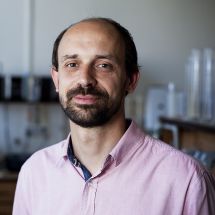
Jan Bartáček
Project Coordinator, UCT Prague
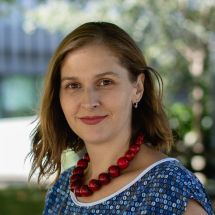
Lucie Pokorná
Project Administration, Webmaster

Bukola Lois Ojobe
Webmaster
[urlnadstranka] => [ogobrazek] => [pozadi] => [iduzel] => 59396 [canonical_url] => [skupina_www] => Array ( ) [url] => /contact [sablona] => stdClass Object ( [class] => stranka [html] => [css] => [js] => [autonomni] => 1 ) ) [56461] => stdClass Object ( [nazev] => Event registration [seo_title] => Event registration [seo_desc] => [autor] => [autor_email] => [obsah] => [urlnadstranka] => [ogobrazek] => [pozadi] => [iduzel] => 56461 [canonical_url] => [skupina_www] => Array ( ) [url] => /event-registration [sablona] => stdClass Object ( [class] => stranka [html] => [css] => [js] => [autonomni] => 1 ) ) [24134] => stdClass Object ( [obsah] => [iduzel] => 24134 [canonical_url] => [skupina_www] => Array ( ) [url] => [sablona] => stdClass Object ( [class] => [html] => [css] => [js] => [autonomni] => ) ) ) [iduzel] => 49299 [canonical_url] => [skupina_www] => Array ( ) [url] => [sablona] => stdClass Object ( [class] => [html] => [css] => [js] => [autonomni] => ) ) [49298] => stdClass Object ( [obsah] => [poduzel] => stdClass Object ( [49300] => stdClass Object ( [obsah] => [iduzel] => 49300 [canonical_url] => //repares.vscht.cz [skupina_www] => Array ( ) [url] => /[menu-main] [sablona] => stdClass Object ( [class] => api_html [html] => [css] => [js] => [autonomni] => 1 ) ) [49301] => stdClass Object ( [obsah] => [iduzel] => 49301 [canonical_url] => [skupina_www] => Array ( ) [url] => /[menu-top] [sablona] => stdClass Object ( [class] => api_html [html] => [css] => [js] => [autonomni] => 1 ) ) ) [iduzel] => 49298 [canonical_url] => [skupina_www] => Array ( ) [url] => /[en]/49298 [sablona] => stdClass Object ( [class] => api_html [html] => [css] => [js] => [autonomni] => 1 ) ) ) [sablona] => stdClass Object ( [class] => web [html] => [css] => [js] => [autonomni] => 1 ) [api_suffix] => )DATA
stdClass Object
(
[nazev] => Interlaboratory Study
[seo_title] => Interlaboratory Study
[seo_desc] =>
[autor] => Sabina Purkrtova
[autor_email] =>
[perex] => The methods for the quantification of ARGs enable quantifying ARGs amount in different parts of wastewater treatment plants (WWTPs), including inputs and outputs. This data allows to survey the fate of ARGs in WWTPs, to study the effect of single processes in WWTP on ARGs abundance, and last but not least to quantify the applied load of ARGs carried by WWTP outputs to the environments.
[ikona] =>
[obrazek] =>
[vyska] =>
[ogobrazek] =>
[pozadi] =>
[obsah] => 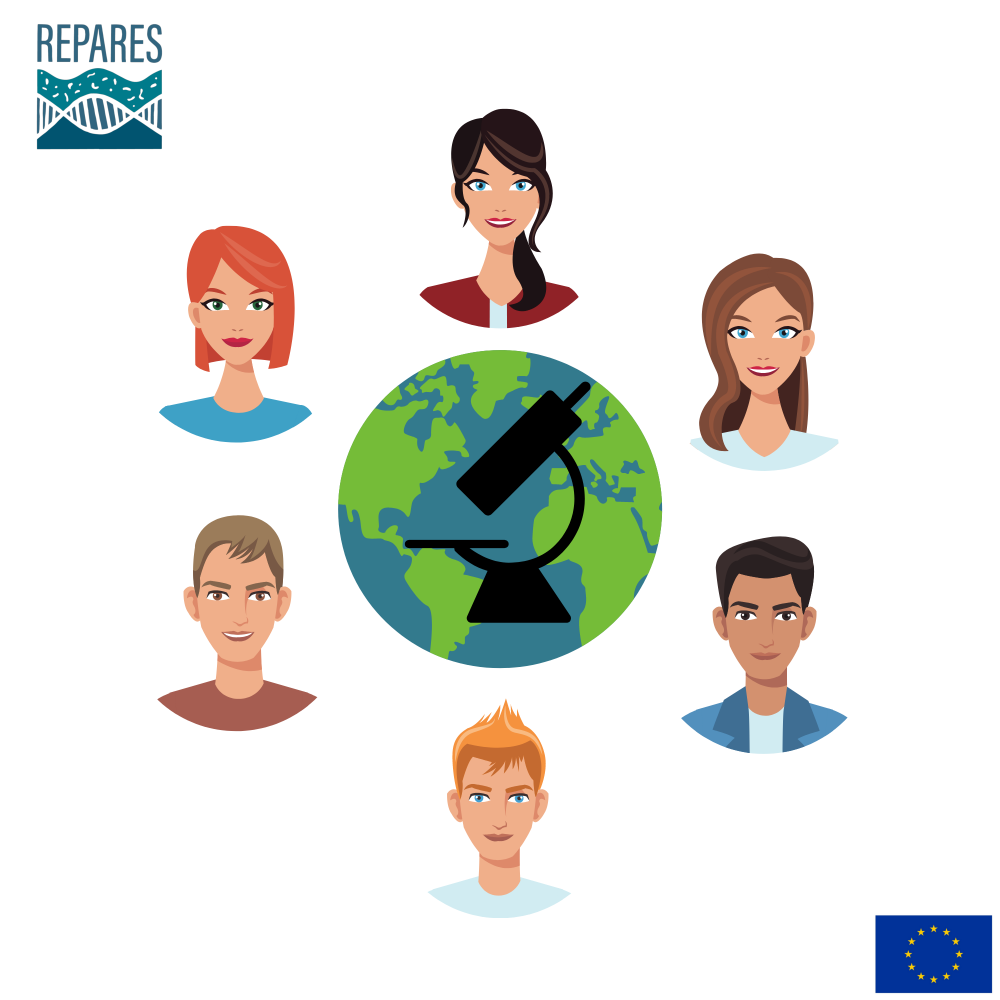 The quantitative-based PCR methods (qPCR) belong to the most often used methods for quantifying ARGs, widely used in scientific studies. Despite this fact, the standard internationally validated or recommended methodology for qPCR quantification in WWTP samples has not yet been established. The quantitative standard methodology (“golden standard”) would cover not only the description of the single procedure steps but also the evaluation of test characteristics, for example, the selectivity (inclusivity/exclusivity), lowest validated level with satisfactory precision, repeatability, reproducibility and the uncertainty of the method.
The quantitative-based PCR methods (qPCR) belong to the most often used methods for quantifying ARGs, widely used in scientific studies. Despite this fact, the standard internationally validated or recommended methodology for qPCR quantification in WWTP samples has not yet been established. The quantitative standard methodology (“golden standard”) would cover not only the description of the single procedure steps but also the evaluation of test characteristics, for example, the selectivity (inclusivity/exclusivity), lowest validated level with satisfactory precision, repeatability, reproducibility and the uncertainty of the method.
In REPARES Ring test interlaboratory studies, we work on establishing such qPCR-based standard protocol and on evaluating the effect of single steps on its result. These single steps cover the isolation of DNA and absolute qPCR quantification based on DNA intercalating dyes and using gBlocks.
At this moment, these interlaboratory studies are four sides, conducted by UCP Porto, UCT Prague, TU Delft, and Wetsus. The University of Warsaw ensures the bioinformatics support for these studies.
In the first run in 2020, we analyzed qPCR quantification of four different genes in activated sludges. All laboratories analyzed as the sample of activated sludges, as the sample DNA, isolated from it. The results imply that qPCR analyses have more extent effect on these ARGs quantification than performing the isolation of DNA.
In the second run, planned for September 2021, we will test these qPCR protocols for samples of anaerobic sludges and treated WWTP effluent and some other genes. The important part of the investigation will also direct to discover and quantify the impact of single qPCR steps (e.g., primers design, used master mixes, and chemicals).
We want to invite also other laboratories to join our interlaboratory studies.
We are looking for cooperating laboratories quantifying ARGs. It enables us to fortify these protocols verification (by testing our protocol if you perform qPCR quantification too) and/or to compare these protocols to other ARGs quantification methods (by comparing results if you perform different qPCR protocols or any other DNA based quantification methods).
If you are interested in joining us, please write to repares@vscht.cz subject: RING TEST. We will find a way how to cooperate.
[submenuno] =>
[drobeckyno] =>
[urlnadstranka] =>
[newurl_domain] => 'repares.vscht.cz'
[newurl_jazyk] => 'en'
[newurl_akce] => '/antibiotic-resistance/interlaboratory-study'
[newurl_iduzel] =>
[newurl_path] => 8549/49296/49297/49299/59393/59798
[newurl_path_link] => Odkaz na newurlCMS
[iduzel] => 59798
[platne_od] => 11.06.2021 10:55:00
[zmeneno_cas] => 11.06.2021 10:55:06.319602
[zmeneno_uzivatel_jmeno] => Bukola Lois Ojobe
[canonical_url] =>
[idvazba] => 70570
[cms_time] => 1752196848
[skupina_www] => Array
(
)
[slovnik] => Array
(
)
[poduzel] => Array
(
)
[sablona] => stdClass Object
(
[class] => stranka
[html] =>
[css] =>
[js] =>
[autonomni] => 1
)
[api_suffix] =>
)
